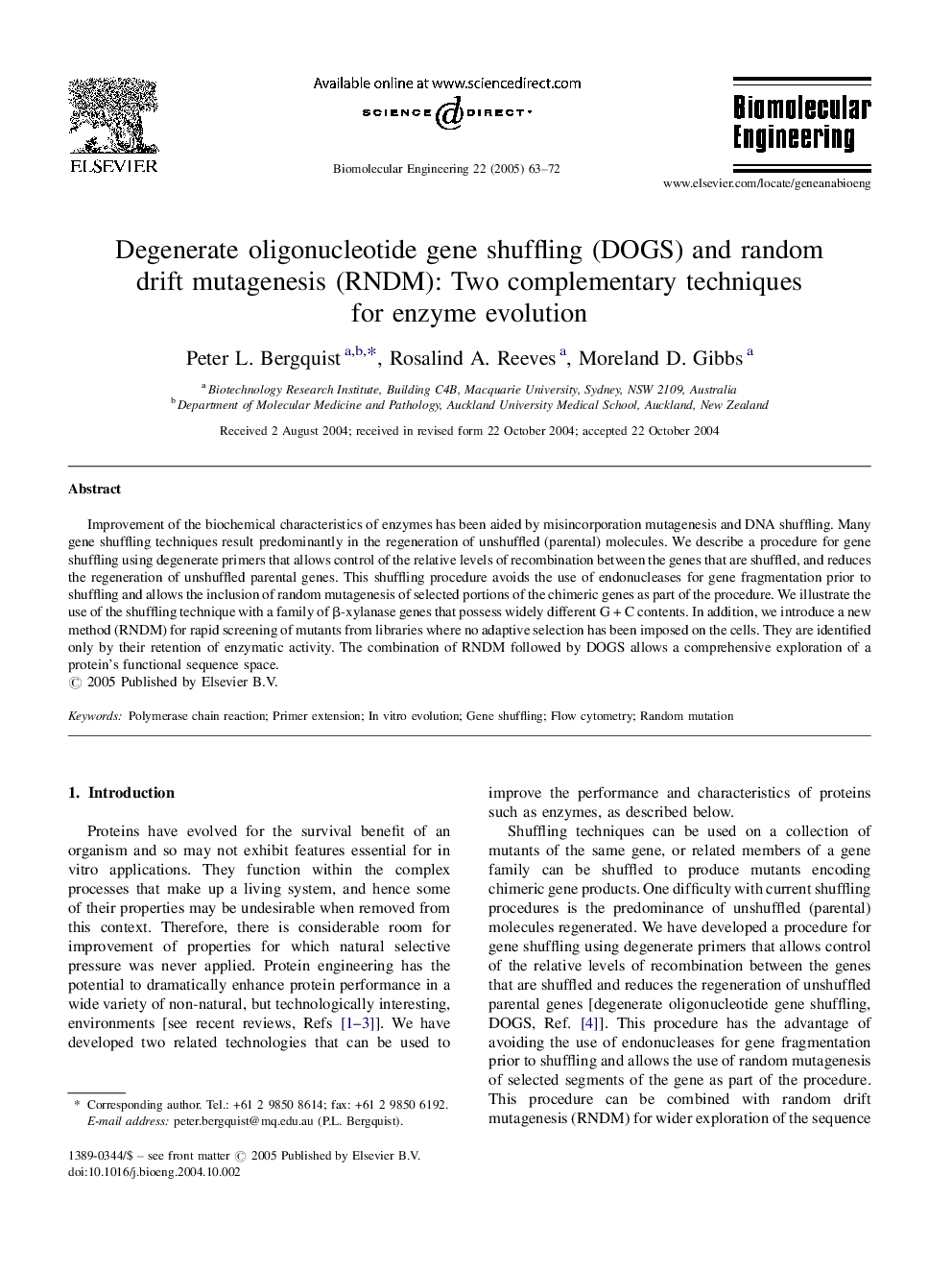| Article ID | Journal | Published Year | Pages | File Type |
|---|---|---|---|---|
| 9602415 | Biomolecular Engineering | 2005 | 10 Pages |
Abstract
Improvement of the biochemical characteristics of enzymes has been aided by misincorporation mutagenesis and DNA shuffling. Many gene shuffling techniques result predominantly in the regeneration of unshuffled (parental) molecules. We describe a procedure for gene shuffling using degenerate primers that allows control of the relative levels of recombination between the genes that are shuffled, and reduces the regeneration of unshuffled parental genes. This shuffling procedure avoids the use of endonucleases for gene fragmentation prior to shuffling and allows the inclusion of random mutagenesis of selected portions of the chimeric genes as part of the procedure. We illustrate the use of the shuffling technique with a family of β-xylanase genes that possess widely different G + C contents. In addition, we introduce a new method (RNDM) for rapid screening of mutants from libraries where no adaptive selection has been imposed on the cells. They are identified only by their retention of enzymatic activity. The combination of RNDM followed by DOGS allows a comprehensive exploration of a protein's functional sequence space.
Keywords
Related Topics
Physical Sciences and Engineering
Chemical Engineering
Bioengineering
Authors
Peter L. Bergquist, Rosalind A. Reeves, Moreland D. Gibbs,
